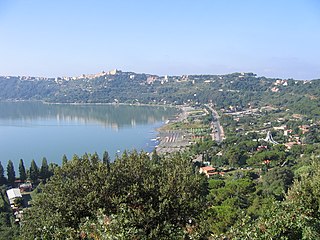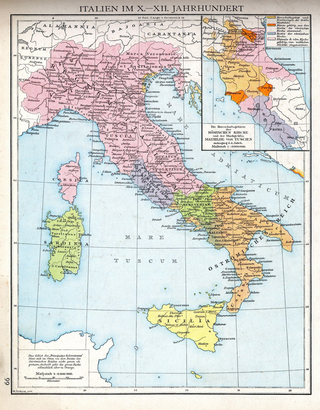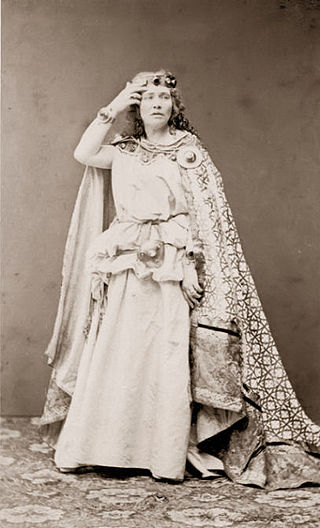Gandulf or Gandolf (Latin Gandolphus, French Gandolphe, Italian Gandolfo) is a masculine given name of Germanic origin, common in the Middle Ages. The roots of the name are gand (literally "wand" or "magic wand", by extension "sorcery") and wolf ("wolf"). [1]
Paul may refer to:
Arnulf is a masculine German given name. It is composed of the Germanic elements arn "eagle" and ulf "wolf". The -ulf, -olf suffix was an extremely frequent element in Germanic onomastics and from an early time was perceived as a mere suffix forming given names. Similarly, the suffix -wald, -ald, -old, originally from wald "rule, power" underwent semantic weakening. Therefore, the name Arnulf and Arnold were often conflated in early medieval records, as is the case with bishop Arnulf of Metz, especially as the final consonant came to be dropped (Arnoul).
Anselm may refer to:
Hieronymus, in English pronounced or, is the Latin form of the Ancient Greek name Ἱερώνυμος (Hierṓnymos), meaning "with a sacred name". It corresponds to the English given name Jerome.
Constantius may refer to:

Castel Gandolfo, colloquially just Castello in the Castelli Romani dialects, is a town located 25 kilometres (16 mi) southeast of Rome in the Lazio region of Italy. Occupying a height on the Alban Hills overlooking Lake Albano, Castel Gandolfo has a population of approximately 8,900 residents and is considered one of Italy's most scenic towns.
Hilary, Hilarie or Hillary is a given and family name, derived from the Latin hilarius meaning "cheerful", from hilaris, "cheerful, merry", which comes from the Greek ἱλαρός (hilaros), "cheerful, merry", which in turn comes from ἵλαος (hilaos), "propitious, gracious". Ilaria is the popular Italian feminine form, while Ilario is the Italian masculine one. Other male forms are Hilarion, Ilarion, and Illarion.
Ailill is a male name in Old Irish. It is a prominent name in Irish mythology, as for Ailill mac Máta, King of Connacht and husband of Queen Medb, on whom Shakespeare based the Fairy Queen Mab. Ailill was a popular given name in medieval Ireland, meaning something like "beauty".
Palace of the Popes may refer to:
Apollinaris may refer to:
Odo is a name typically associated with historical figures from the Middle Ages and before. Odo is etymologically related to the names Otho and Otto, and to the French name Odon and modern version Eudes, and to the Italian names Ottone and Udo; all come from the Germanic word ot meaning "possessor of wealth".
Eustathius or Eustathios is a Greek masculine given name, in English rendered Eustace. It may refer to:
Abundius was a saint and bishop of Como, Italy.
Wulfgar, Wolfgar and Wolfger are variants of an Old High German masculine given name meaning "wolf-spear". They may refer to:
Adelheid is the modern Dutch and German form of the Old High German female given name Adalheidis, meaning "nobility" or "noble-ness". It may refer to the following people:
Bruno may refer to:
Gundulf and its variants is a Germanic given name, from gund, "battle", and wulf, "wolf".
Lupus means "wolf" in Latin. It was a Latin cognomen and since then has become both a given name and family name.

Gandulf or Gandolf was a Frankish nobleman in the medieval kingdom of Italy. He rose from relatively low rank to become the count of Piacenza and finally a marchio (marquis). He is an ancestor of the Da Palazzo family.

Isolde is a German feminine given name derived from either the Old High German words īs ("ice") and hiltja ("battle"), or the Brythonic adsiltia. The name was further popularized in Germany and German-speaking countries following the opera Tristan und Isolde composed by Richard Wagner between 1857 and 1859, and based on the 12th-century chivalric romance Tristan and Iseult. Wagner subsequently had a daughter in 1865, who was named Isolde von Bülow.